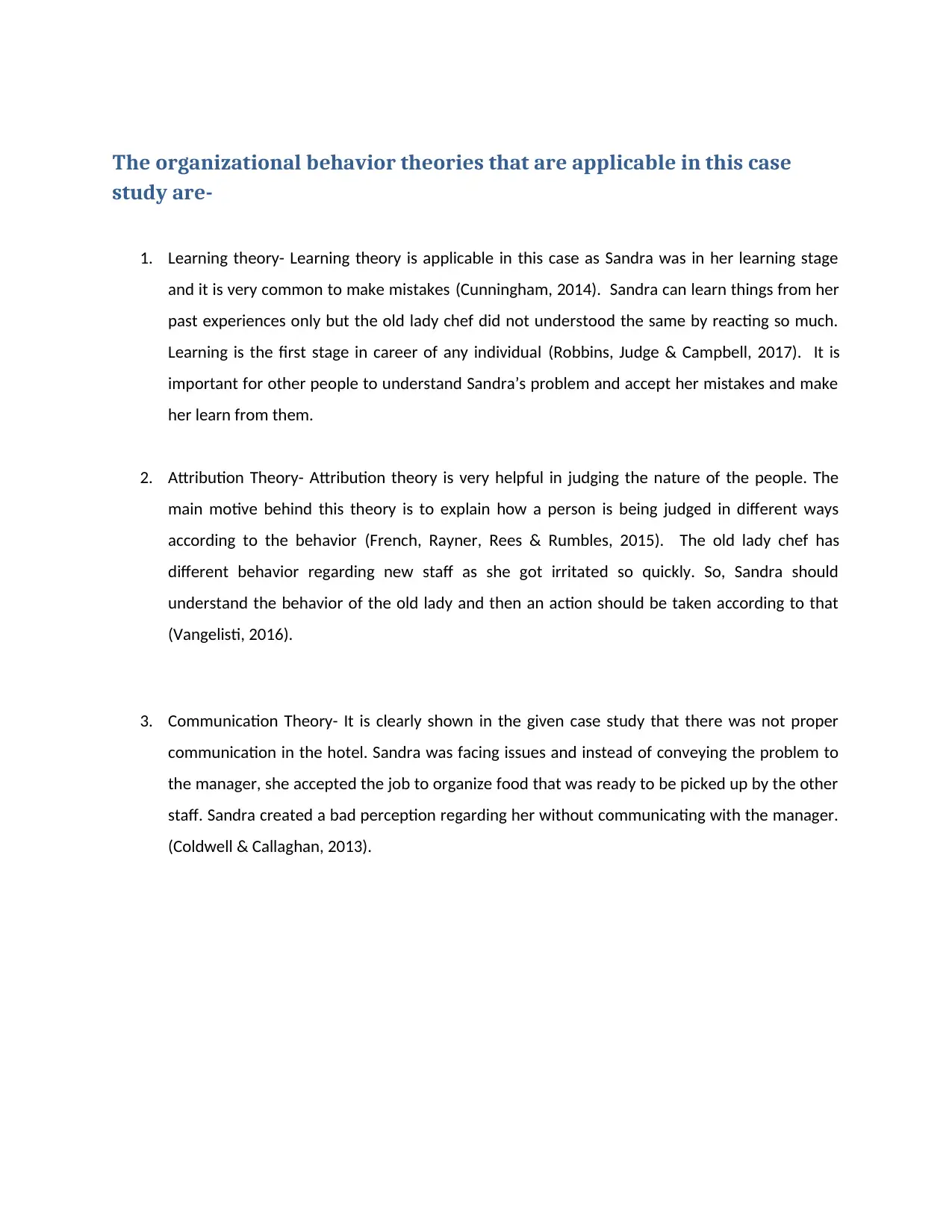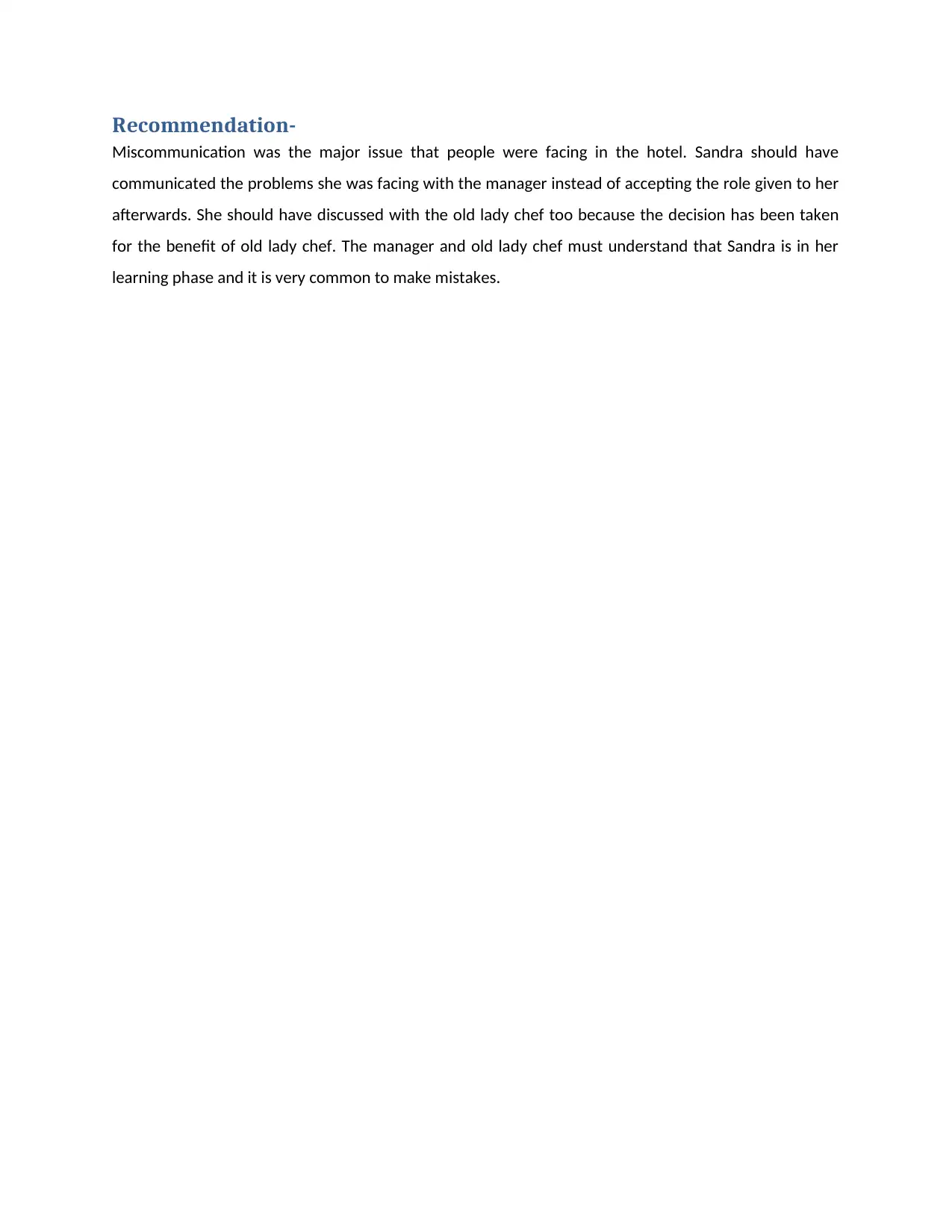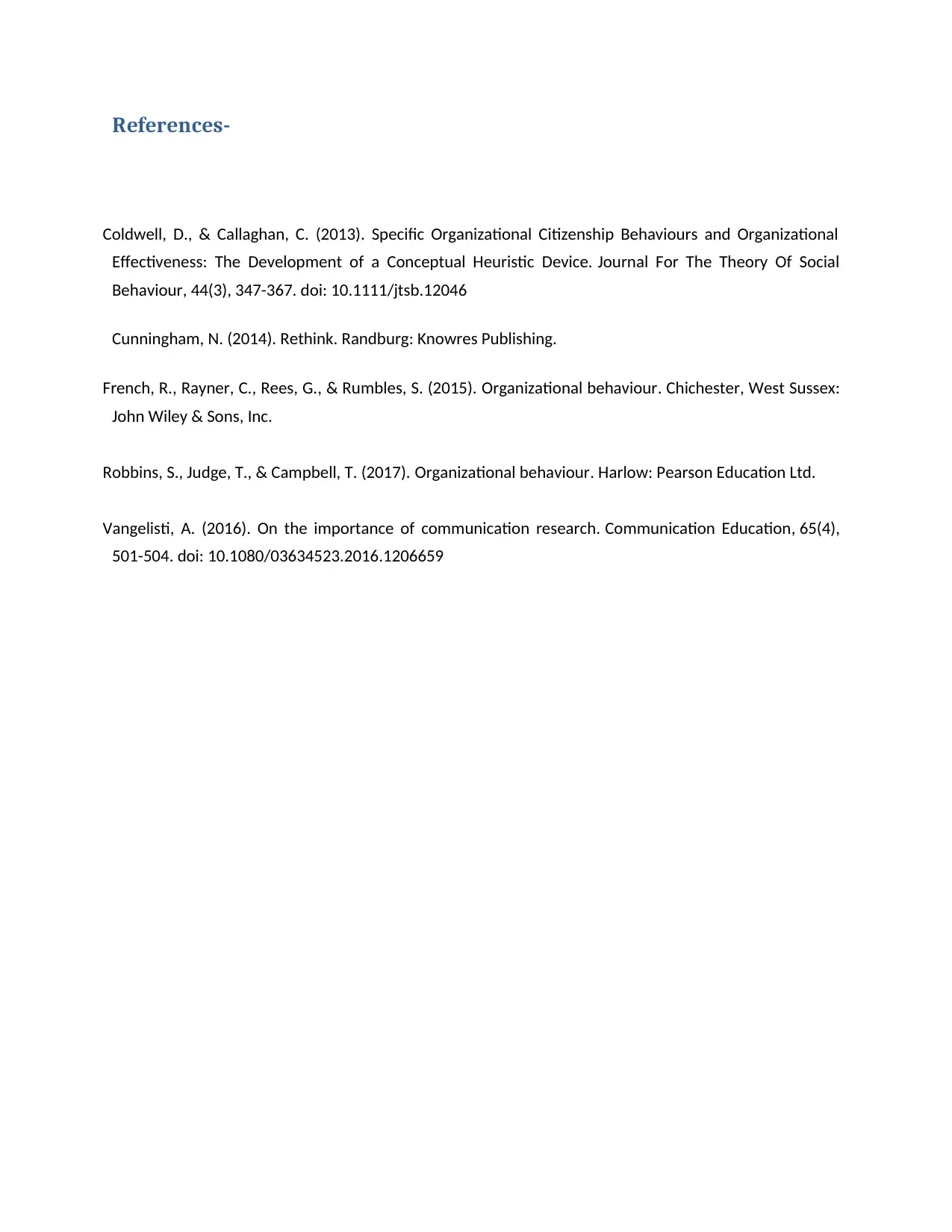BHM207 Organisational Behaviour: Case Study Analysis of Charleston
VerifiedAdded on 2023/06/11
|3
|510
|273
Case Study
AI Summary
This case study examines organizational behavior theories applicable to The Charleston Hotel, focusing on an intern's experiences and challenges. The analysis highlights the relevance of learning theory, attribution theory, and communication theory in understanding the dynamics between the intern, an experienced chef, and the hotel management. The study identifies miscommunication as a key issue and recommends improved communication strategies for the intern and management, emphasizing the importance of understanding and accommodating the intern's learning phase. The recommendations aim to foster a more supportive and effective work environment within the hotel.
1 out of 3




![[object Object]](/_next/static/media/star-bottom.7253800d.svg)